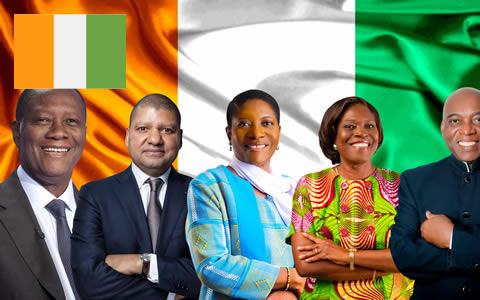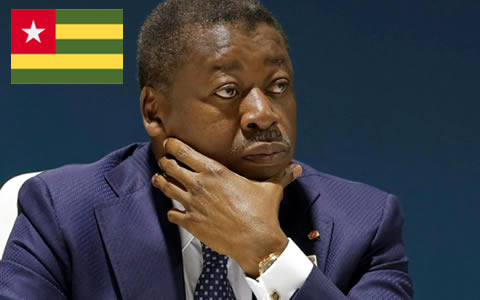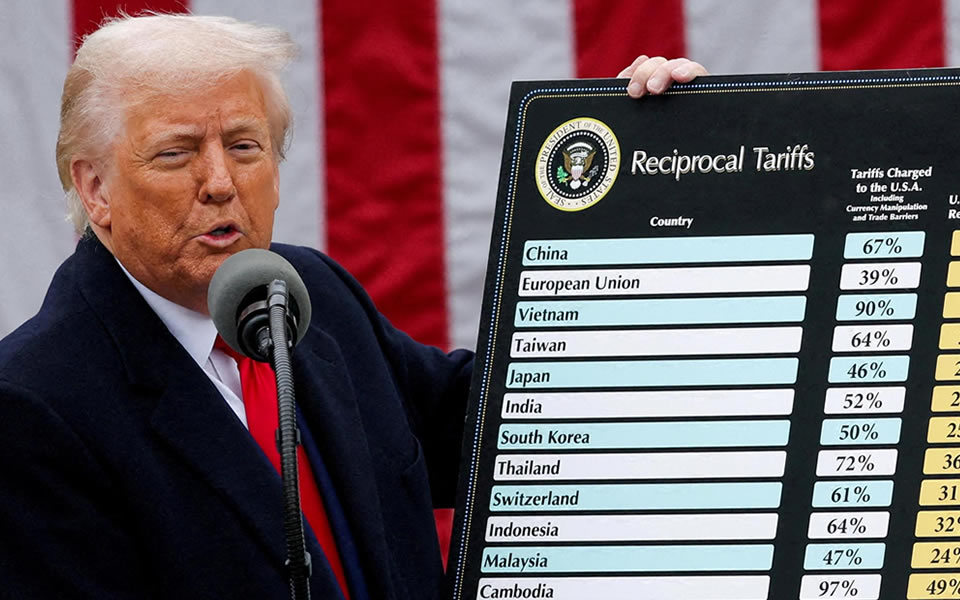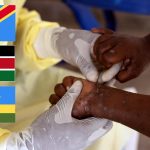
Mpox Outbreak: Current Situation & Forecast
August 16, 2024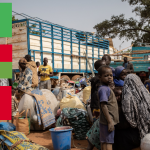
Interactive Dashboard: Civilian Targeting in West Africa
September 27, 2024GHANA DECIDES 2024: COMPARING NPP & NDC POLICY VISIONS

What You Should Know
- Distinct Policy Visions by NPP & NDC: This report compares the key policy proposals from the New Patriotic Party (NPP) and the National Democratic Congress (NDC) on economic management, job creation, healthcare, education, governance, and national security.
- Economic Approaches: The NPP advocates for private-sector-led growth, digital transformation, and fiscal discipline, while the NDC focuses on state-led intervention through structural reforms and public-sector-driven projects like the 'Big Push.'
- Job Creation Strategies: Dr. Bawumia's NPP emphasizes digital skills and private-sector-driven employment, while Mahama's NDC prioritizes public infrastructure projects, and targeted support for agriculture and industry to create jobs.
- Healthcare Focus: The NPP is focused on health digitization and tele-medicine expansion, while the NDC plans to provide free primary healthcare and bolster healthcare infrastructure across regions.
- National Security: Both parties emphasize bolstering security but differ in their approach: the NPP prioritizes tech-driven surveillance and border protection, while the NDC focuses on community policing, anti-terrorism measures, and reforming security institutions.
Introduction
The policy frameworks laid out by both the NPP and NDC reflect their core ideologies and visions for national development. The NPP, led by Dr. Mahamudu Bawumia, focuses on leveraging the private sector, digitalization, and fiscal discipline to drive growth. In contrast, the NDC, led by John Dramani Mahama, advocates for state-led reforms, prioritizing public investment and structural changes to reset the economy and address inequality.
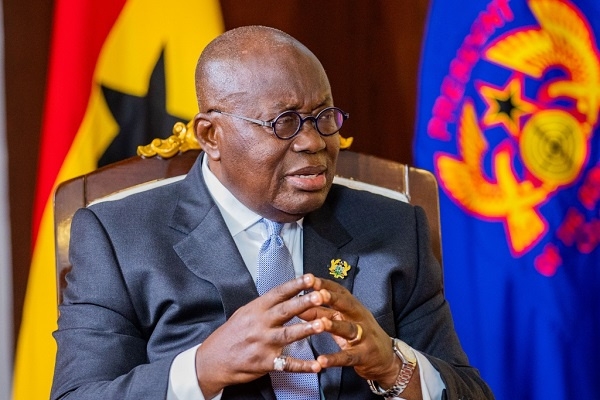
Economic Vision

The NPP's economic vision centers on private-sector-driven growth, emphasizing industrial expansion, digital transformation, and fiscal prudence. Their strategy builds on existing programs, with a focus on foreign investment and making the private sector a key driver of economic recovery.
In contrast, the NDC is pushing for a more interventionist approach, aiming to reset the economy through structural reforms and public-sector-driven projects like the 'Big Push' and the '24-Hour Economy.'
NPP's Economic Vision
- Sustaining Economic Growth: Targeting 6% GDP growth over the next four years, focusing on agriculture, mining, and tourism.
- Public-Private Partnerships (PPP): Using PPPs to finance large-scale infrastructure projects and shift fiscal responsibility to the private sector.
- Fiscal Discipline: Establishing a Fiscal Responsibility Council to ensure government expenditures do not exceed 105% of the previous year’s tax revenue.
- Flat Tax System: Introducing a simplified tax regime to boost compliance and increase revenue.
- Digital Economy: Expanding the digital economy through ICT infrastructure and positioning Ghana as Africa’s digital hub.
NDC's Economic Outlook
- Urgent Economic Reset: Focus on macroeconomic stabilization, fiscal responsibility, and restoring investor confidence, with the promise of scrapping regressive taxes like the E-levy.
- Focus on the Real Sector: Emphasizing agriculture, industry, and manufacturing with policies that promote agri-business and value addition.
- Job Creation through Infrastructure: The 'Big Push' initiative will target strategic infrastructure projects, stimulating growth and creating jobs.
- Tax Reforms: Rationalizing the VAT system and reversing changes that burden small businesses.
- Restoring Confidence in Financial Institutions: Launching forensic audits into the collapse of indigenous banks and restoring financial licenses.
Job Creation & Employment
Both the NPP and NDC emphasize job creation, though their strategies differ markedly. The NPP is focused on digital transformation and private-sector jobs, while the NDC is pushing for large-scale public infrastructure projects to stimulate employment. Youth employment is a common priority, but each party's method reflects its broader economic philosophy.
NPP’s Job Creation Plan
- Youth Digital Skills Training: Training 1 million youth in digital skills to drive the digital economy.
- Public-Private Partnerships (PPPs): Expanding PPPs to create jobs in infrastructure, energy, and agribusiness.
- Agro-Processing and Agribusiness: Establishing factories in every district through the 1D1F initiative to boost jobs in rural areas.
- SME Growth: Launching an SME Bank to support entrepreneurship and business expansion.
- Industrial Jobs through Mining: Creating jobs in mining and value-chain industries with a focus on minerals processing.
NDC’s Job Creation Strategy
- 24-Hour Economy: Encouraging businesses to operate in three shifts, thus creating jobs across sectors like manufacturing and transportation.
- National Apprenticeship Program: Offering free technical training for self-employment and a skilled workforce.
- Big Push for Infrastructure: Creating thousands of jobs through strategic infrastructure projects in roads, hospitals, and schools.
- Women’s Development Bank: Supporting women-owned businesses to economically empower women and boost job creation.
- Agro-Industrial Zones: Establishing zones to promote value addition in agriculture and boost employment.
Education & Youth Development
Education is a cornerstone of both parties’ manifestos, but their visions diverge significantly. The NPP focuses on continuing their free SHS program, expanding TVET (Technical and Vocational Education and Training), and promoting digital literacy. The NDC, on the other hand, aims to improve the quality of education and provide targeted support to marginalized groups, including a strong focus on inclusive access and reforming the free SHS system to address inefficiencies.
Both parties emphasize youth development, but the NPP’s strategy leans toward digital transformation, while the NDC’s vision prioritizes social inclusion and practical reform.
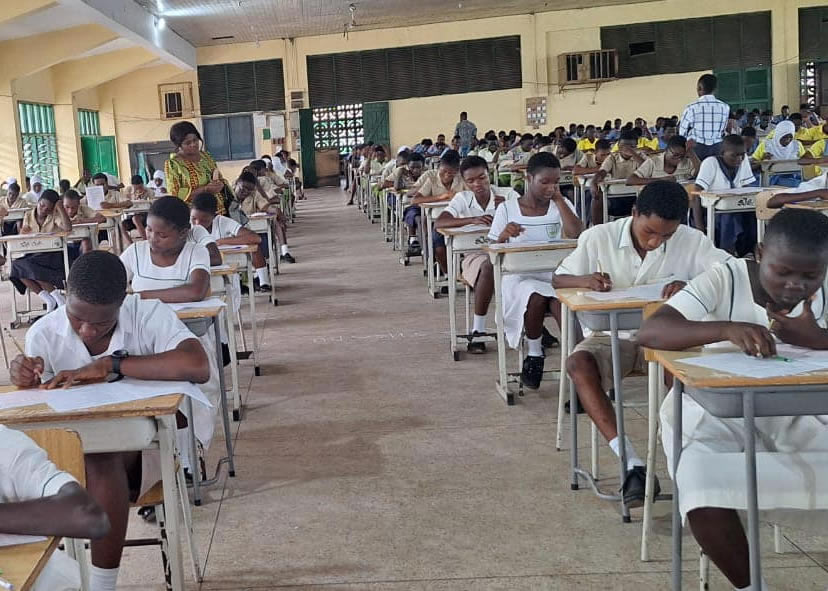
Dr. Bawumia’s Vision for Education
- Expansion of Free SHS: The NPP plans to expand the free Senior High School (SHS) program and improve infrastructure.
- TVET and STEM: Emphasizing technical and vocational education to equip youth with practical skills for the job market.
- Digital Literacy: Expanding digital education, aiming to train 1 million youth in coding, software development, and cybersecurity.
- Scholarships and Financial Aid: Expanding scholarship programs with a focus on STEM courses.
- Infrastructure Development: Building new schools and modernizing existing ones to meet rising enrollment.
John Mahama’s Plan for Education
- Improving Free SHS: Enhancing the quality of education by abolishing the double-track system and completing infrastructure projects.
- Free Tertiary Education for PWDs: Offering free tertiary education for Persons with Disabilities (PWDs).
- Teacher Welfare and Training: Abolishing the teacher licensure exams and improving welfare for teachers posted in rural areas.
- Early Childhood Education: Revitalizing early childhood education through the 'Bright Beginnings Initiative.'
- Infrastructure Development: Prioritizing the completion of abandoned educational infrastructure and expanding student accommodation.
Healthcare
The healthcare strategies presented by both the NPP and NDC offer distinct visions for how Ghana should address public health challenges and improve the quality of healthcare delivery. While the NPP’s approach focuses on completing ongoing infrastructure projects and integrating technology into the healthcare system, the NDC’s vision is centered around universal access, affordability, and improving the welfare of healthcare workers.
Both parties place emphasis on healthcare infrastructure development, but they diverge in their broader approaches to ensuring comprehensive health services for all Ghanaians.

NPP’s Healthcare Agenda
- Infrastructure Expansion: Completing the Agenda 111 hospital projects to improve healthcare accessibility nationwide.
- Digitization and Telehealth: Expanding telemedicine services and digitizing public healthcare institutions.
- Recruitment of Healthcare Workers: Increasing recruitment to meet healthcare demands, particularly in rural areas.
- Healthcare Worker Welfare: Offering car purchase schemes and rural allowances to attract healthcare professionals.
- Pharmaceutical Development: Strengthening the pharmaceutical sector to position Ghana as a regional hub.
NDC’s Healthcare Plans
- Universal Primary Healthcare: Providing free primary healthcare at all CHPS compounds, health centers, and polyclinics.
- Healthcare Infrastructure: Building specialist hospitals and refurbishing major teaching hospitals like Korle Bu.
- Chronic Disease Management: Establishing the Ghana Medical Care Trust Fund to support patients with chronic illnesses.
- Healthcare Worker Incentives: Offering rural allowances, scholarships for advanced studies, and risk exposure insurance for healthcare workers.
- Pharmaceutical Support: Supporting local drug production and boosting the pharmaceutical sector.
Governance & Accountability
Governance and accountability are critical themes in both the NPP and NDC manifestos, as they each recognize the need to improve transparency, reduce corruption, and enhance the efficiency of public institutions. However, their approaches diverge significantly, with the NPP emphasizing the consolidation of its digital governance reforms, while the NDC advocates for a more direct approach to tackling corruption and downsizing government.
The NPP's approach is centered on leveraging digital tools to enhance governance transparency and accountability, continuing the reforms they've already initiated. They see digitalization as the key to streamlining government operations and reducing corruption. The NDC, on the other hand, is more focused on reducing the size of government and launching forensic investigations into alleged corruption under the NPP’s administration. While the NPP’s governance reforms are largely based on enhancing existing systems, the NDC is committed to making more structural changes, including downsizing ministries and appointing fewer ministers.
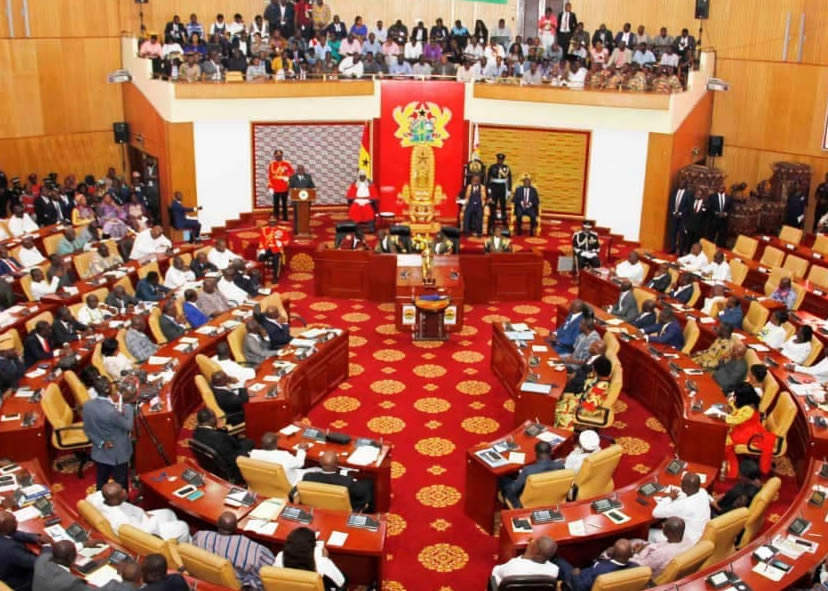
NPP’s Governance Vision
- Digital Governance: Expanding digital tools for governance transparency and accountability.
- Fiscal Responsibility: Establishing a Fiscal Responsibility Council to oversee government spending.
- E-Government Initiatives: Continuing digitization of government services like land registration and tax administration.
- Public Sector Reforms: Cutting wasteful spending and improving public sector efficiency.
- Combating Corruption Through Technology: Conducting real-time digital audits to prevent corruption.
NDC’s Governance Vision
- Downsizing Government: Reducing the size of government by appointing no more than 60 ministers.
- Anti-Corruption Investigations: Launching investigations into corruption scandals and recovering stolen public funds.
- Independent Institutions: Strengthening the independence of anti-corruption institutions like the Auditor General’s Office.
- Scrapping Ex-Gratia Payments: Abolishing ex-gratia payments to political office holders.
- Public Sector Efficiency: Enhancing the performance of public institutions through structural reforms.
National Security & Defence
National security is a critical issue, and both parties prioritize strengthening security forces and ensuring internal stability. The NPP focuses on tech-driven security measures, while the NDC emphasizes institutional reforms and community policing.

NPP’s National Security Vision
- Technology-Driven Surveillance: Deploying 50,000 anti-crime cameras and equipping police with body cameras.
- Border Security and Counter-Terrorism: Completing Forward Operating Bases (FOBs) along borders to deter terrorism.
- Recruitment of Security Personnel: Recruiting 20,000 more officers to bolster the security apparatus.
- Cybersecurity Development: Expanding the National Cybersecurity Centre to tackle digital threats.
- Community Policing: Increasing police visibility and installing more CCTV cameras in urban areas.
NDC’s National Security Approach
- Purging Vigilantism: Removing militia elements from security services to restore public trust.
- Enhanced Police Presence: Increasing police patrols and visibility, particularly in high-crime areas.
- Merit-Based Recruitment: Introducing a transparent, decentralized recruitment system for security agencies.
- Security Personnel Welfare: Improving the welfare of security personnel with better housing, salaries, and healthcare.
- Anti-Terrorism Efforts: Enhancing border security and counter-terrorism efforts through international cooperation.
Energy & Environment
The energy and environmental sectors are central to both the NPP and the NDC’s development agendas. Both parties recognize the importance of reliable energy supply and environmental sustainability as critical drivers of economic growth and societal well-being. However, their approaches reflect differing priorities, with the NPP focusing more on energy sector reform and renewable energy, while the NDC emphasizes environmental protection, energy access, and industrialization through energy.
The NPP’s energy strategy is centered on boosting renewable energy, improving the efficiency of the power sector, and using innovative programs like the “Gold-for-Oil” initiative to manage costs. Their environmental vision revolves around addressing illegal mining and deforestation. The NDC, in contrast, focuses on rectifying inefficiencies in the energy sector while prioritizing a transition to sustainable energy sources and reclaiming degraded land. Their vision for the environment is more centered on aggressive action against illegal mining and improving water resources management.
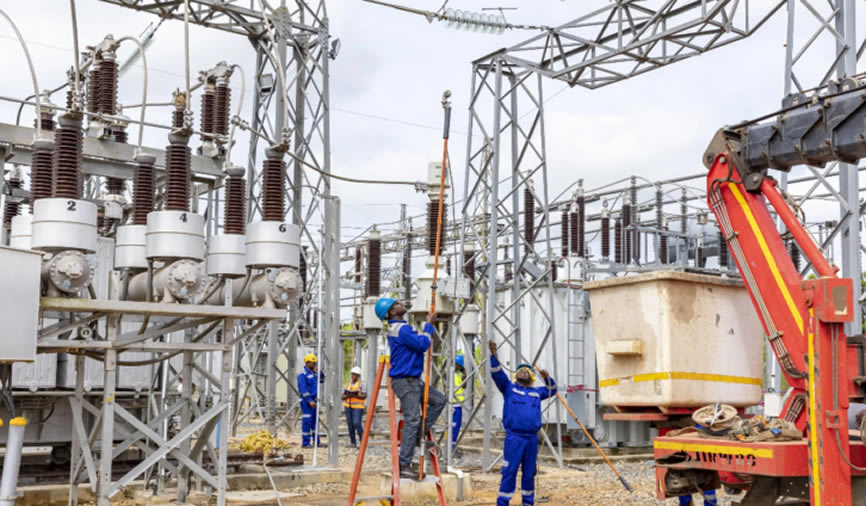
NPP’s Energy & Environment Vision
- Renewable Energy: Bringing 2,000 MW of solar energy onstream to boost Ghana’s renewable capacity.
- Gold-for-Oil Initiative: Stabilizing fuel prices by using gold reserves to offset oil imports.
- Energy Tariff Reforms: Introducing a fairer tariff system to reduce energy costs for businesses.
- Reforestation: Reforesting 30,000 hectares of degraded land per year to protect water bodies.
- Tackling Galamsey: Strengthening regulations to combat illegal mining and environmental degradation.
NDC’s Energy & Environment Plans
- Fixing Energy Sector Inefficiencies: Addressing the mounting debts and inefficiencies in the energy sector.
- Sustainable Energy Transition: Promoting a balanced energy mix with renewable sources and off-grid solutions.
- Reclaiming Degraded Land: Implementing the 'Tree for Life' reforestation initiative to restore land degraded by illegal mining.
- Responsible Mining: Establishing a Ghana Gold Board to regulate small-scale mining operations.
- Climate Change Mitigation: Promoting green industrialization and climate change adaptation measures.
Sports & Tourism
Sports and tourism are key sectors for both parties. The NPP aims to position Ghana as a global tourism hub through digital tools and infrastructure development, while the NDC emphasizes grassroots sports revival and Pan-African cultural tourism.
NPP’s Sports & Tourism Vision
- Sports Infrastructure Expansion: Building stadiums in all newly created regions and upgrading existing facilities.
- Reviving Domestic Leagues: Supporting local sports leagues and providing clubs with operational resources.
- Digital Tourism: Simplifying visa processes with e-visas and positioning Ghana as a digital tourism hub.
- Tourism Infrastructure: Upgrading key tourism sites and developing recreational villages in partnership with the private sector.
- Hosting Major Events: Preparing Ghana for international sporting success, particularly targeting the 2028 Olympics.
NDC’s Sports & Tourism Vision
- Grassroots Sports Development: Reviving Colts football and creating sports academies to nurture young talent.
- Regional Sports Infrastructure: Building multi-purpose sports facilities in every region.
- The Black Star Experience: Promoting Ghana as a Pan-African cultural tourism destination through year-round events.
- Creative Arts Fund: Reviving the Creative Arts Fund to support Ghanaian artists and filmmakers.
- International Sports Excellence: Supporting athletes competing internationally and establishing a sports university for training.
Conclusion
Both the NPP and NDC offer compelling yet contrasting visions for Ghana’s future. The NPP's manifesto is built around maintaining stability, deepening digital transformation, and empowering the private sector as the engine of economic growth. On the other hand, the NDC calls for an urgent economic reset, with a greater role for the state in stimulating job creation and improving social welfare through public-sector-led initiatives.
Ultimately, the choice before the Ghanaian electorate will come down to which vision aligns with their aspirations. Whether it's the NPP’s focus on fiscal discipline and private sector growth or the NDC’s promises of public investment and reforms, the next government will face the challenge of leading Ghana through a critical period of economic recovery and transformation.

